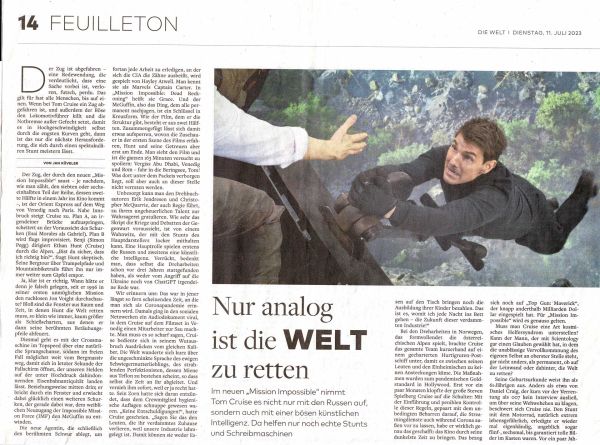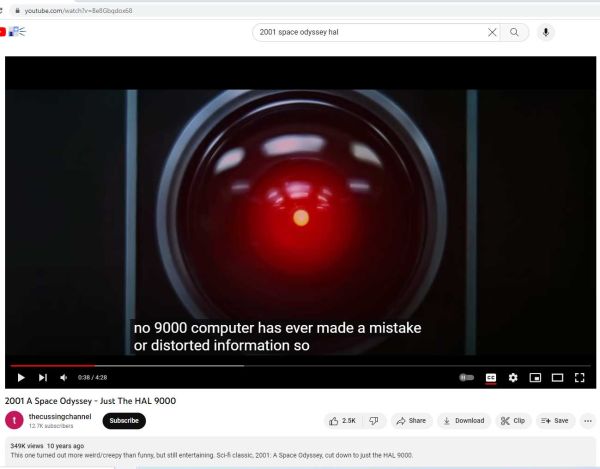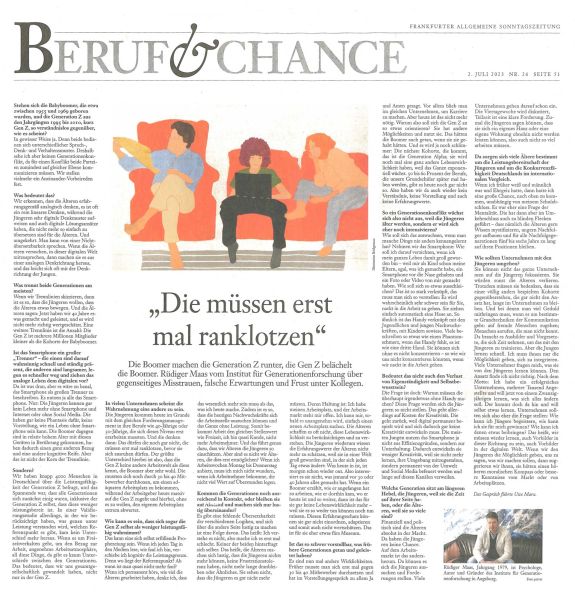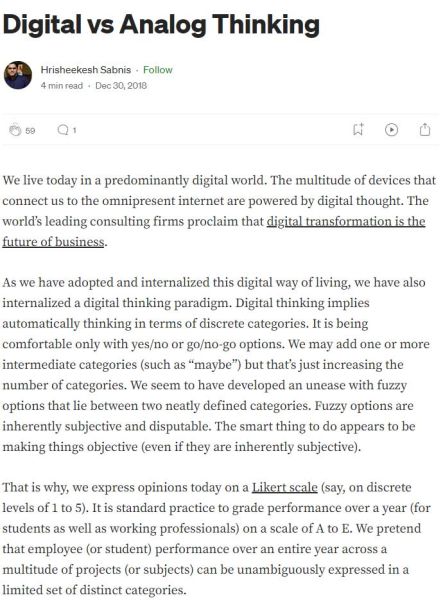Analog vs. Digital
Analog vs. Digital
I stayed in Germany for three weeks in June and July. Night-time temperatures were as low as 52F. Day-time temperatures sometimes reached into the 90s. I usually eat breakfast at my hotel and look at newspapers. For some reason, several articles made comparisons between "anolog" devices and "digital" devices.
The movie critics describe Tom Cruise's new Mission Impossible movie as "adrenaline-pumping," with "flirtatious interludes" (Dwight Brown), "thrilling action sequences" (Jake Wilson), "a style of pressurized efficiency" (Isaac Feldberg), and "identities are assumed, masks are worn and revealed" (Adam Mullins-Khatib). Another reviewer writes less enthusiastically: "the screenplay needs work" (Christian Toto). The reviewers applauded Cruise for performing his own stunts. Rotten Tomatoes, the movie-review aggregate, gives the movie a 96% rating.
But the title of the article in the Die Welt newspaper puzzles me. It reads in English "Only Analog can Save the World." I wondered what in the heck that meant? So I stopped to read it. From what I can gather, the Tom Cruise character faces an enemy named the "Entity," i.e., artificial intelligence empowered by "sentience," A.I. with a destructive intentionality. Since Entity controls the Internet, only analog devices are safe to use.
Since I am 71 years old, I know that earlier films have also used the renegade A.I. theme—both of them from the 1960s. Stanley Kubrick's fascinating but scary 2001: a Space Odyssey about "HAL," a series 9000 computer that interacts with humans and takes over a space-ship, capitvated everyone who saw it. If anything, it has accrued street-cred since its premier.
I also remember the TV mini-series The Prisoner, starring Patrick MacGoohan. In the episode "The General," the leader of a dictatorial society uses its computer "General" to implant historical facts to facilitate speed-learning. The only problem is that everyone learns the facts in isolation, without the accompanying hows or whys. People sit together and recite the "facts" indistinguishably—with the same pauses, intonations, and emphases.
This next article appeared in one of the Sunday papers. I always pay particular attention to Sunday papers because they cover a wider range of subjects in-depth. "Beruf & Chance" translates roughly into "Professions and Opportunities." The title of the article translates to "Everybody needs to dig a little deeper." It concerns the level of mistrust, rivalry, and frustration that exists between older and younger generations—called "Boomers" and "Gen. Z."
In a larger sense, the gulf that exists concerns the use of analog devices by older people and digital devices used by the young. The article continues that people who grew up with analog devices talk and think differently from those who use only digital. So the gulf between the generations has a lot to do with an inability to communicate.
Yet another article, "Digital vs. Analog Thinking," written by Hrisheekesh Sabnis in 2018, appeared on-line. Hrisheekesh studied chemical engineering and information science at the Indian Institute of Technology in Mumbai. He writes that " Digital thinking implies automatically thinking in terms of discrete (distinct) categories. It is comfortable only with 'yes/no' or 'go/not-go' categories."
The article continues that "Any opinion expressed on any topic is pigeon-holed . . . labeled as left-wing or right-wing, liberal or conservative, etc. The nuances, complexities, and trade-offs that go into a particular point of view are lost in the process."
Analog thinking, on the other hand, does not suggest something obsolete, just different: "The analog mode of thinking allows you to have an infinite number of states," says Hrisheekesh. "You focus on the reality of a situation . . . and not be constrained to force-fit into predefined categories."
I haven't got my brain completely around this subject myself; but I can see the basic pattern of truth in Hrisheekesh's thesis just in social media, like Facebook. Where is an acceptance of the ambiguity of people? Much of the conflict in America relates back to this question.





